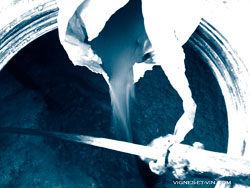Sustainable development and phytosanitary products
- 28 March 2012
- Last Updated: 27 April 2012
- Hits: 13970
The wine tourist loves nature and wants to keep it. Therefore, an exploitation that wine tourism practice must meet the standards of Sustainable Development. Here are some elements :
effluent phytosanitary
The official texts in France
for example :
Article 2 : Whatever the changing weather conditions during product use, appropriate means must be implemented to avoid pulverisation out of the plot or the treated area.
In France since September 12, 2006 phytosanitary effluents are monitored carefully. For details here are the official texts :
- on the marketing and use of products referred to in Article L. 253-1 of the Rural Code;
- list of processes to treat effluent (pdf);
- technical manuals of procedures for treating effluents (pdf).

Summary of recommendations of sustainability standards
The implementation of these standards is underway in all farms. An excellent paper waspublished by the French Institute of Vine and Wine on "phytosanitary effluents: organize its operations to manage and treat". It provides practical guidance in relation to the texts of laws.
Here are the essential elements on which you can ask questions :
After treatment of the vine, which remains at the bottom of the tank of the sprinkler deviceshould be diluted and then reused on this parcel. What will remain after this dilution can be washed on the parcel respecting the borders ofareas (eg 100m of a bathing place).If the above method is not done, the grower must be able to recover its surplus productsprocessing facilities personal or collective. The treatment of this waste will be directed bya service provider (200 to 500 euros HT/m3) or by operation using methods listed.
These measures are taken to reduce what is called the "diffuse contamination of soils". It is important that only promotes wine tourism operations that preserve soil quality. Feel free to ask questions of the wine producers.






